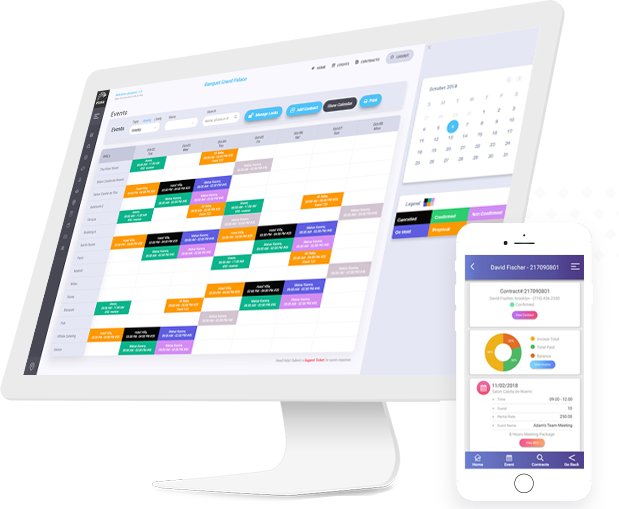In today's competitive business landscape, companies are focused on more than just acquiring new customers. Customer Relationship Management (CRM) is a valuable tool that helps organizations achieve these goals. CRM encompasses various technological tools designed to enhance business operations and foster strong relationships with customers. This comprehensive guide explores CRM, its benefits in streamlining business processes, potential challenges, effective CRM strategies, and answers to frequently asked questions, providing a thorough understanding of this essential business approach.
UNDERSTANDING CUSTOMER RELATIONSHIP MANAGEMENT (CRM)
Definition and Importance
Customer Relationship Management (CRM) refers to a strategic approach centered on managing interactions and relationships with customers. It involves leveraging data, processes, and technology to gain insights into customers' needs, preferences, and behaviors. This understanding allows businesses to tailor their offerings, provide personalized experiences, and build lasting customer relationships.
CRM is crucial in modern business as it enables proactive customer engagement, anticipates needs, and delivers exceptional service throughout the customer journey. This helps companies increase sales, boost customer satisfaction, improve productivity, and drive long-term growth.
Key Technological Solutions
CRM encompasses a range of technological solutions that enhance customer-related operations, including:
Customer Data Management: CRM systems offer a centralized database for managing customer information, such as contact details, purchase history, preferences, and interactions.
Sales and Marketing Automation: CRM platforms provide automation tools for email marketing, lead management, campaign tracking, and customer segmentation, streamlining sales and marketing activities.
Customer Service and Support: CRM software includes features for managing support interactions, tickets, and customer inquiries.
Analytics and Reporting: CRM solutions offer advanced analytics and reporting tools to analyze data, measure performance, and understand customer behavior.
BENEFITS OF CRM IMPLEMENTATION FOR EFFICIENT BUSINESS MANAGEMENT
Implementing CRM offers numerous benefits for companies aiming to enhance customer satisfaction, growth, and operational efficiency. Key advantages include:
Improved Customer Relationships
CRM enables businesses to develop deeper connections with customers by collecting and analyzing customer data. Personalized interactions, tailored recommendations, and proactive support foster trust and loyalty.
Enhanced Customer Satisfaction
CRM helps companies deliver prompt, relevant, and personalized experiences at every stage of the customer journey. Understanding unique customer needs allows businesses to address concerns quickly, resolve issues efficiently, and exceed expectations, thereby increasing satisfaction.
Streamlined Sales and Marketing Processes
CRM systems enhance sales and marketing efficiency by automating lead tracking, opportunity management, and sales forecasting. This helps sales teams prioritize and close deals faster. CRM also facilitates targeted marketing campaigns, improving conversion rates and ROI.
Effective Data Management
CRM systems provide a centralized repository for customer data, eliminating silos and enhancing data integrity. Accurate, up-to-date information enables data-driven decision-making, valuable insights, and strategy optimization.
Increased Efficiency and Productivity
Streamlining workflows and processes allows employees to focus on high-value tasks like nurturing relationships and driving revenue. CRM provides a comprehensive view of customer interactions and data, improving collaboration.
PITFALLS TO AVOID IN IMPLEMENTING CRM
While CRM offers significant benefits, potential pitfalls can hinder successful implementation. Addressing these challenges proactively maximizes CRM value. Common pitfalls include:
Focusing on Efficiency over Effectiveness
Prioritizing efficiency at the expense of effectiveness can undermine customer satisfaction and engagement. Balancing both is crucial to deliver optimal customer experiences.
Neglecting Customer Engagement
CRM should facilitate active customer engagement. Failing to engage customers, seek feedback, and foster meaningful interactions can lead to missed growth opportunities and customer churn.
Lack of Proper Training and Support
Adequate training and support are essential for successful CRM adoption. Without them, employees may struggle with new processes and technologies, leading to low system utilization and underused features.
Insufficient Data Quality and Integration
Data quality and integration are critical for CRM success. Inaccurate or incomplete data can result in poor decision-making and ineffective CRM initiatives. Establishing data governance and integrating CRM with other business systems maintain data integrity.
Poor Change Management
CRM implementation often involves organizational changes. Poor change management can create resistance, hampering adoption and benefits. Effective change management strategies, such as clear communication and stakeholder involvement, are vital.
BEST PRACTICES FOR SUCCESSFUL CRM IMPLEMENTATION
To maximize ROI and ensure successful CRM implementation, businesses should follow best practices tailored to their specific needs and goals:
Define Clear Objectives
Before implementing CRM, define clear objectives and desired outcomes, such as increased sales, improved customer satisfaction, or streamlined processes. Well-defined goals guide implementation and provide a basis for measuring success.
Align CRM Strategy with Business Goals
Ensure your CRM strategy supports your organization's vision, mission, and strategic goals. Aligning CRM initiatives with broader business objectives integrates CRM into your business strategy, creating synergy.
Choose the Right CRM Solution
Select a CRM solution that meets your specific needs, budget, scalability, and integration requirements. Consider factors like vendor reputation, mobile accessibility, customization options, and user-friendliness. Choose a CRM system that aligns with your company's needs and growth goals.
Ensure Data Quality and Integration
Maintain high data quality by establishing data governance processes, defining data standards, and regularly validating and cleansing data. Integrate CRM with other business systems to enable seamless data flow and maintain a single source of truth.
Provide Adequate Training and Support
Invest in comprehensive training and support programs to facilitate smooth CRM adoption. Train employees to use the CRM system effectively and align their processes with CRM operations. Provide ongoing support through user forums and helpdesk services.
Foster Cross-Functional Collaboration
CRM implementation often involves multiple departments. Promote interdepartmental cooperation and communication. Break down information silos and encourage information sharing to provide a comprehensive view of the customer and consistent experiences across touchpoints.
Continuously Monitor and Improve
CRM is an ongoing process. Monitor key performance indicators (KPIs) such as productivity, revenue growth, and customer satisfaction. Use CRM reporting and analytics to gather insights and identify areas for improvement. Regularly review and adjust CRM strategies to align with evolving business needs.
Top CRM Software
Selecting the right CRM software is crucial for success, beginning with making an informed choice. We've reviewed numerous leading solutions to identify the best CRM software for small businesses. Here are some of our top picks:
Salesforce: A well-known leader in CRM software, Salesforce continues to set the industry benchmark and is a preferred choice for many businesses. Our review found it to be a versatile and comprehensive solution suitable for small businesses.
Pipedrive: Ideal for those who appreciate visual tools, Pipedrive offers an intuitive drag-and-drop interface for building visual sales pipelines. This standout feature made a significant impression during our review.
Monday: For businesses seeking to integrate CRM with project management, monday is an excellent option. Our review highlighted how the software's project management capabilities enhance customer relationship management, making it a powerful tool for aligning customer interactions with internal processes.
HubSpot: Perfect for businesses with existing software suites, HubSpot excels in integration. Our review revealed that HubSpot's extensive integrations allow seamless connectivity with various business applications, facilitating easy data sharing across teams and departments.
These selections, along with our other top picks, represent some of the best CRM systems available today, offering a range of useful features for small businesses.
FREQUENTLY ASKED QUESTIONS (FAQS)
FAQ 1: Can CRM be beneficial for small businesses?
Absolutely! CRM can benefit businesses of all sizes, including small businesses. Implementing CRM enables small businesses to streamline their customer-related processes, enhance customer relationships, and deliver personalized experiences. It can help small businesses compete effectively, improve customer satisfaction, and drive growth.
FAQ 2: How long does it take to implement a CRM system?
The implementation timeframe for a CRM system varies depending on factors such as the complexity of the organization's processes, the size of the company, and the chosen CRM solution. On average, CRM implementation can take anywhere from a few weeks to several months. It is essential to plan the implementation process carefully, allocate resources, and consider factors such as data migration, customization, and user training.
FAQ 3: Is CRM only for sales and marketing teams?
No, CRM is not limited to sales and marketing teams. While sales and marketing teams often benefit significantly from CRM, its impact extends to other departments as well. Customer service teams can leverage CRM to improve support processes, track customer inquiries, and ensure prompt issue resolution. Additionally, CRM can provide valuable insights to management and aid in strategic decision-making across the organization.
FAQ 4: Can CRM help improve customer loyalty?
Yes, CRM can play a crucial role in improving customer loyalty. By understanding customer preferences, needs, and behavior, businesses can personalize interactions, deliver exceptional experiences, and build strong relationships. CRM enables proactive engagement, targeted marketing campaigns, and efficient customer support, all of which contribute to enhanced customer loyalty and retention.
FAQ 5: What are the costs associated with CRM implementation?
The costs of CRM implementation can vary depending on factors such as the chosen CRM solution, customization requirements, data migration, training, and ongoing support. It is essential to consider both upfront costs, such as software licenses and implementation services, as well as long-term costs, including maintenance, upgrades, and user training. It is advisable to work closely with CRM vendors or implementation partners to get a clear understanding of the total cost of ownership and develop a budget accordingly.









.jpg )







Leave a comment